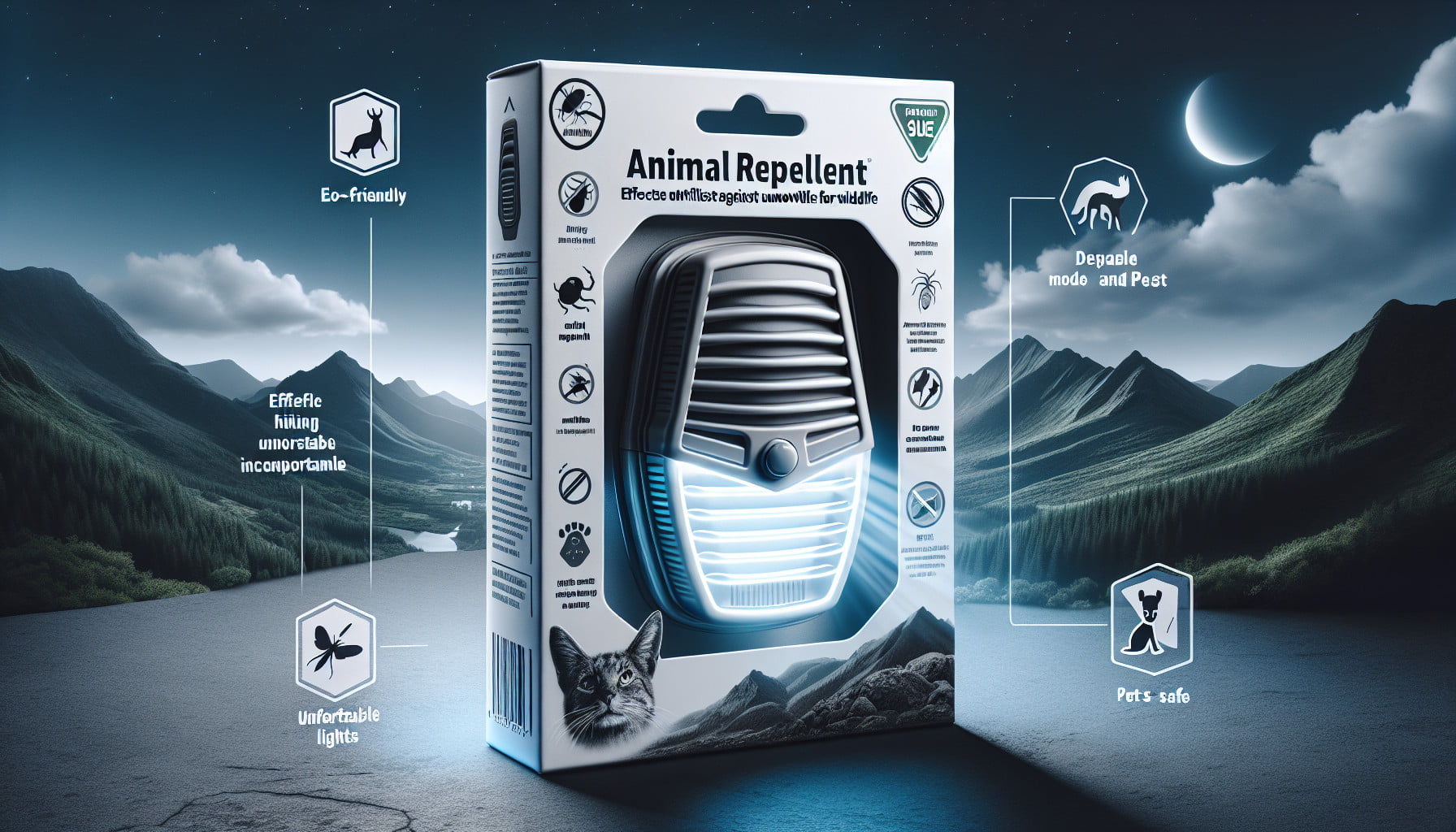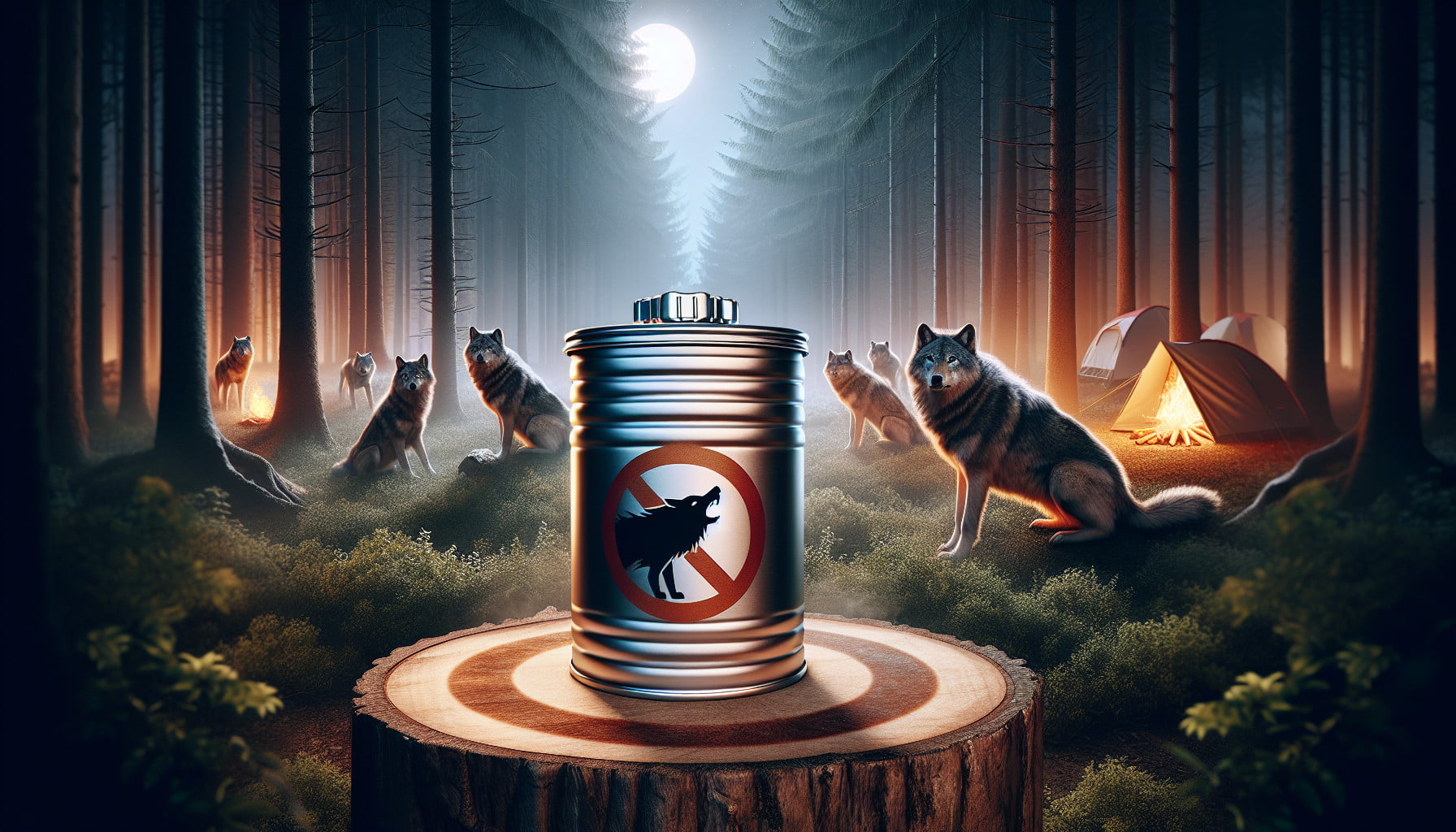Are you tired of dealing with pesky critters while enjoying the great outdoors? Look no further! In this article, we will showcase the most popular animal repellents for hiking and camping. From bears to mosquitoes, these products are designed to keep unwanted creatures at bay, allowing you to fully enjoy your outdoor adventures without any unwanted encounters. So, whether you’re embarking on a challenging hike or setting up camp for the night, these animal repellents will be your best companion in ensuring a critter-free experience.
Introduction
When you’re out hiking or camping, the last thing you want is to be bothered by pesky animals. Whether it’s mosquitoes, ticks, or other critters, they can quickly turn a peaceful outdoor adventure into an itchy and uncomfortable experience. That’s where animal repellents come in handy! In this article, we’ll explore the different types of animal repellents available, including chemical repellents, natural repellents, and electronic repellents. We’ll dive into the effectiveness, application methods, and safety considerations of each, helping you find the perfect solution to keep those critters at bay and enjoy your time in the great outdoors.
Types of Animal Repellents
Chemical Repellents
Chemical repellents are one of the most widely used types of animal repellents. They contain certain ingredients that effectively repel insects and other animals. The three main chemical repellents you’ll come across are DEET, Picaridin, and Permethrin.
Natural Repellents
If you prefer a more holistic approach, natural repellents could be the answer for you. These repellents use plant-based ingredients to keep insects and animals away. Some popular natural repellents include citronella, lemongrass, peppermint, clove oil, and eucalyptus.
Electronic Repellents
For those who want a hands-off approach, electronic repellents offer a convenient solution. These devices emit ultrasonic sounds, vibrations, or use light to repel animals. They are portable and can be easily attached to your clothing or camping gear.

Chemical Repellents
Chemical repellents like DEET, Picaridin, and Permethrin have been widely used for their effectiveness in repelling animals. Let’s take a closer look at each of them.
DEET
DEET is one of the most well-known insect repellents on the market. It has been proven to effectively repel mosquitoes, ticks, and other insects. DEET-based repellents are available in various concentrations, with higher concentrations providing longer-lasting protection. However, it’s important to note that DEET can cause skin irritation in some individuals.
Picaridin
Picaridin is another popular chemical repellent that is comparable to DEET in terms of effectiveness. It repels a wide range of insects, including mosquitoes and ticks. Picaridin-based repellents are generally considered safe for use on the skin and do not cause as much skin irritation as DEET.
Permethrin
Permethrin is a chemical repellent that is used to treat clothing, gear, and fabrics rather than being applied directly to the skin. It creates a protective barrier that repels insects on contact. Permethrin-treated clothing can provide long-lasting protection against mosquitoes, ticks, and other insects. It is important to follow the application instructions carefully and allow the treated items to dry fully before use.
Natural Repellents
Natural repellents offer an alternative to chemical-based options. Here are some popular natural repellents and their properties.
Citronella
Citronella is a common natural repellent that is derived from the oils of citronella grass. It is known for its strong and pleasant scent, which helps to repel mosquitoes and other insects. Citronella-based repellents are widely available in various forms, including candles, sprays, and lotions.
Lemongrass
Lemongrass, as the name suggests, has a fresh lemony scent. It contains citronella oil, which repels mosquitoes and other insects. Lemongrass-based repellents are often used in combination with other natural ingredients to create effective repellent products.
Peppermint
Peppermint is not only refreshing but also acts as a natural repellent. Its strong scent masks the attractant odors that attract insects. Peppermint oil can be used in various forms, including sprays and lotions, to keep mosquitoes and other insects away.
Clove Oil
Clove oil is known for its strong and spicy aroma. It has been used as a natural insect repellent for centuries. Clove oil can be diluted and applied to the skin or used as an ingredient in homemade repellent sprays or creams.
Eucalyptus
Eucalyptus oil is derived from the leaves of the eucalyptus tree. It has a strong, distinct scent that repels mosquitoes, ticks, and other insects. Eucalyptus-based repellents are available in various forms, including sprays and lotions.

Electronic Repellents
If you’re not a fan of applying repellents directly to your skin or clothing, electronic repellents offer an alternative solution. These devices use ultrasonic sounds, vibrations, or light to deter animals. Let’s delve into the effectiveness, application, and other considerations of electronic repellents.
Effectiveness
Electronic repellents use sound or light to disrupt the sensory systems of animals, making the environment unpleasant for them. While they can be effective in repelling some animals, their effectiveness can vary depending on factors such as the type of animal, environmental conditions, and the specific device being used.
Application
Electronic repellents are typically designed to be portable and easy to use. They can be attached to clothing, backpacks, or camping gear, making them convenient to carry around. Some electronic repellents come with adjustable settings, allowing you to customize the intensity or frequency of the repellent signals.
Impact on Other Insects
It’s important to note that electronic repellents may not discriminate between the animals you want to repel and beneficial insects such as bees or butterflies. While they may be effective in repelling mosquitoes or ticks, they can potentially disturb other insects in the area. Consider the potential impact on the ecosystem before using electronic repellents extensively.
In conclusion, animal repellents are an essential tool for anyone venturing into the great outdoors. Whether you choose chemical repellents, natural repellents, or electronic repellents, there are options available to suit your preferences. Remember to consider the effectiveness, application methods, and any safety considerations before making your choice. With the right repellent, you can enjoy your hiking or camping trip without the annoyance of unwanted animal encounters. Stay protected and have a great outdoor adventure!
